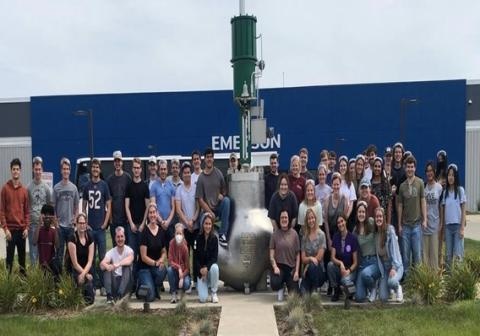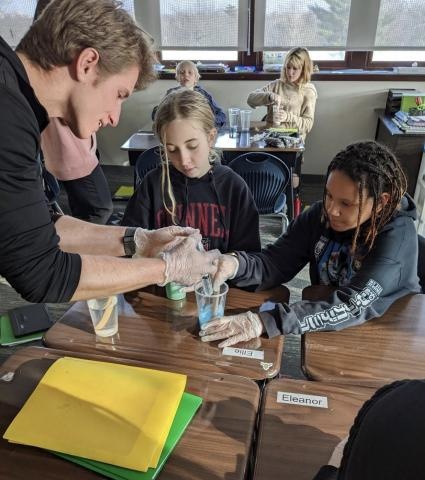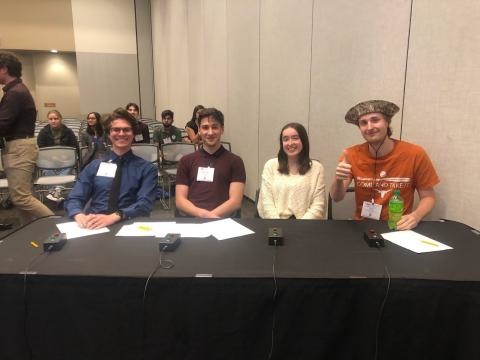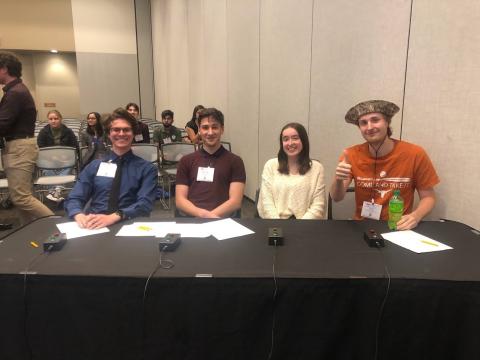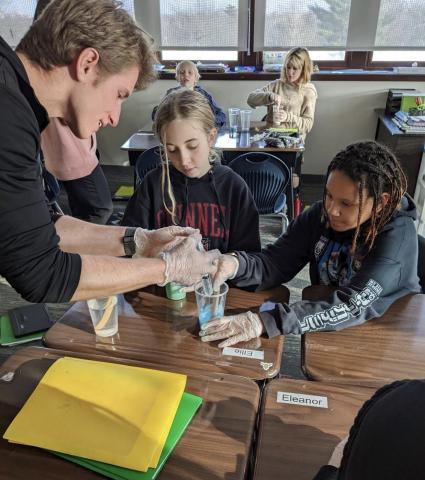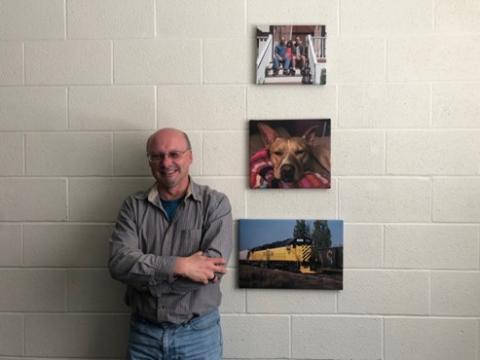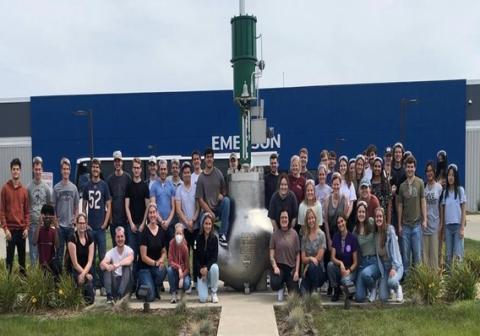Nicholas Brunn
The University of Iowa’s chapter of the American Institute of Chemical Engineers (AIChE) has a mentorship program that allows our underclassmen to receive guidance and advice from their more experienced upperclassmen in the chemical engineering department. Juniors and Seniors are paired with one or more Freshmen and Sophomores based on criteria such as research and career interests as well as focus area. The mentors meet with their mentees several times a semester to provide support and help with any areas where their mentees are struggling. It is common for mentors to help with schedule planning, preparing for interviews or job searches, or just adjusting to life at the university.
This has been my second and final semester as the Vice President and manager of the program. During this time, I have been fortunate to witness sophomores start as mentees and develop into junior mentors thanks to the wisdom they have gained over a year of their studies and through programs such as ours.
The beauty of the Mentor-Mentee Program is that it allows the participants to expand their networks and abilities. The mentees can meet regularly with older chemical engineering students who often have invaluable connections and experience. Mentees can learn the secret tips and tricks to thrive in this major from people who have survived all of the challenges they have faced. The mentors also benefit greatly from this partnership. Meeting with and assisting a mentee allows the mentor to experience a leadership role, where they can guide others in their decision making process, something they will undoubtedly use in their careers as chemical engineers. Furthermore, interacting with a mentee allows the mentor to learn about someone who likely has a different perspective, background, or mindset, and doing so can enrich their student experience and teach valuable lessons about teamwork and leadership. Control over the frequency, duration, and topic of these meetings is left up to the mentees, so they can get as much out of the program as they desire. Some mentees love to meet up with their mentors as often as possible, while others prefer to meet only one or two times a semester, so the flexibility of the program allows every mentee to cater to their own specific needs.
To help support our mentors and mentees, AIChE organizes social events to allow students to meet and interact not just with their mentors/mentees, but also with other chemical engineers in and out of their grade level in a fun and engaging setting. In the past, we have had Mentor-Mentee events where students have been able to play games, compete in laser tag, and engage in creative projects.
The first event this semester was group painting a la Bob Ross. Students were able to meet up shortly after the pairings were made and meet each other in a casual environment. Students were free to forget their classwork for a few hours and paint something beautiful in the company of others. This helped them to destress and flex their creativity. For many of the younger students, this was also their first chance to hang out with their fellow ChemE’s in a nonacademic setting.
We also had an event late in the semester where students were invited to take a break from finals studying and join us in a casual game night. This event, while not as popular as the painting, was a chance for students to interact more directly by playing competitive and cooperative games. Events like this allow students to strategize and work together in avenues outside of academics while also giving them a much needed reprieve from the demands of chemical engineering.
The Mentor-Mentee program is all about getting students together to support each other, provide guidance, and expand personal and professional networks. For that reason, I am proud to be part of such an organization that can do so much to support chemical engineering students. As the semester comes to an end, so too does the program. But come Spring, the program will start again under the guidance of a new vice president. Students will be free to keep the pairings they had before or forge new ones, and I, for one, am excited to see how the program and the students continue to develop.
